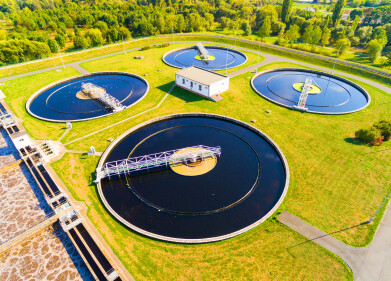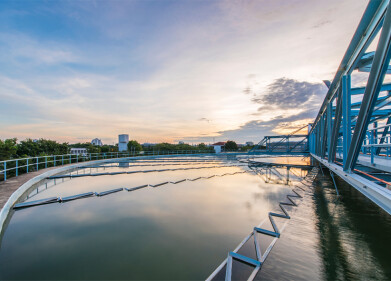Water/Wastewater
How Does Water Infrastructure Affect Coronavirus Risk?
Apr 28 2020
With more than 2.3 million diagnosed cases and over 160,000 deaths to date, coronavirus continues to wreak havoc on global populations. But while scientists research ways of tackling the spread of the disease, experts predict there could be even graver times ahead.
That’s because access to clean water is essential in allowing people to wash their hands, which represents the first line of defence against the pandemic. However, more than half of the world’s population do not enjoy such hygienic sanitation in their country, with those in the developing world particularly at risk.
Given that COVID-19 has yet to properly take root in some of the world’s most impoverished and vulnerable nations, the spread of the disease that we’ve seen until now could be dwarfed by what is to come, with billions of lives potentially at risk.
Underfunding the issue
The bleak predictions were made in a report published by the UN last month, which blamed chronic underfunding for water utilities as the main reason behind the problem. Whether it’s addressing clean drinking water or focusing on wastewater treatment after use, neither endeavour is viewed as an economic one, but rather an environmental one, despite the huge importance of both.
“One of the reasons underlying the investment gap in water and sanitation is that these services are perceived mainly as a social - and in some cases environmental - issue, rather than an economic one, like energy,” explained Richard Connor, who was the editor-in-chief for the paper, which was entitled the World Water Development Report.
“Yet the economic costs of an outbreak [such as COVID-19] are enormous, both in terms of national economies and stock markets, as well as in terms of household revenue - when people cannot work because of sickness or lockdowns. Realising the economic importance of water and sanitation should provide an additional catalyst for greater investment.”
Missing a trick
Despite the unwillingness to invest, the report outlines the clear economic benefits that can be gained from doing so. According to evidence gathered by Connor and his team, drinking water investments can see a 200% return, while those diverted towards improving wastewater sanitation systems can produce 550% returns, when indirect macroeconomic consequences are taken into account.
The last ten years have seen a growing awareness of the importance of environmental issues around the globe, with trillions of dollars being poured into renewable energies and other low-carbon technologies. Water infrastructure has seen a mere fraction of that investment. In one striking example, sewage is responsible for as much as 7% of all greenhouse gas (GHG) emissions, but up to 90% of wastewater all over the world is not treated before being dumped into the environment.
In order to address the problem effectively and safeguard the world population against future pandemics, sufficient attention must be paid to the vital issues. This means placing greater emphasis on the agriculture-water interface, as well as understanding how that delicate balance affects both the environment and the economy.
Digital Edition
IET 34.2 March 2024
April 2024
Gas Detection - Biogas batch fermentation system for laboratory use with automatic gas analysis in real time Water/Wastewater - Upcycling sensors for sustainable nature management - Prist...
View all digital editions
Events
Apr 22 2024 Hannover, Germany
Apr 22 2024 Marrakech, Morroco
Apr 23 2024 Kuala Lumpur, Malaysia
Apr 23 2024 Kintex, South Korea
Apr 23 2024 Edmonton, AB, Canada


















